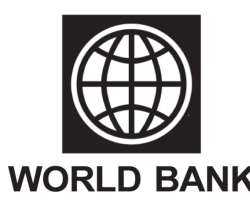World Bank Group Approves New Push to Alleviate Water Scarcity in Senegal River Basin and Wider Sahel

WASHINGTON, December 6, 2013/African Press Organization (APO)/ -- The World Bank Board of Executive Directors today approved US$228.5 million for a new push to boost water management in the Senegal River Basin and further improve the development prospects of Guinea, Mali, Mauritania and Senegal.
More than 4.5 million people living within the Senegal River Basin are expected to benefit directly from this multi-country project. Their countries rank among the world's poorest with 42-53% of the population, mostly subsistence or smallholder farmers, living below the poverty line. Annual population growth is estimated at 2.7 percent and the population is expected to double every 25 years.
During an historic trip last month to the Sahel by development leaders including the UN Secretary General Ban Ki-moon, President Jim Yong Kim of the World Bank Group pledged $1.5 billion in new financing to support major regional development priorities such as social safety nets to help families weather the worst effects of economic adversity and natural disasters, improve infrastructure and create opportunities in rural areas with more hydropower and other sources of clean energy to greatly expand irrigation and transform agriculture. This is the first project under this new initiative.
The project is financed by IDA, the World Bank Group's fund for the poorest countries.*
“Reducing the withering impact of drought will dramatically improve the livelihoods of millions of farmers, herders, and communities across The Sahel, and help to boost peace and development across their region,” says Makhtar Diop, World Bank Vice President for Africa. “If you want to help the people of The Sahel become more resilient to climate change, you have to fight drought first and foremost.”
The Senegal River Basin, which covers 300,000 km², has significant hydropower and irrigation potential which could greatly improve water and food security and provide cheap renewable energy. This project aims to improve water availability for agriculture and food production, support aquaculture and fisheries management, promote hydropower through feasibility studies, reduce malaria and other neglected tropical diseases that sicken millions of people, and pilot innovative approaches to adapt to climate change.
“While working to meet people's energy and food needs in the Senegal River Basin, we also have to help families prevent and treat malaria and other borderless water-related diseases that routinely affect their health and ability to work,” says Colin Bruce, the World Bank Director for Strategy, Operations and Regional Integration in Africa. “That is why this project is also tackling key deficits in health, water, power, food, and fisheries, through strengthened regional cooperation and coordination.”
According to the project document, malaria prevalence rates in the Senegal River Basin are estimated at 14.3% among children under 5, and 9.0% among pregnant women, the most vulnerable groups. Epidemiological mapping shows that Neglected Tropical Diseases (NTDs) such as schistosomiasis, soil- transmitted helminthes/geohelminths, trachoma, lymphatic filariasis and onchocerciasis, affect almost all districts along the Senegal River Basin. Studies have shown that integrated disease control measures, coupled with sound water management, are essential to mitigate the burden of malaria and NTDs in locations near irrigation or dam sites.
The funding approved today includes a US$16-million grant from the Global Environment Facility and the Least Developed Countries Fund to strengthen the capacity of the Organization for the Development of the Senegal River (known by its French acronym, OMVS) which was founded in 1972 to reduce the vulnerability of people's livelihoods in the Basin through coordinated water resource and energy development. OMVS is jointly governed by Guinea, Mali, Mauritania and Senegal.
“This Senegal River project will demonstrate the power of regional integration and collaboration for a strategic group of countries which face rising energy and food shortages, and growing demand which increasingly hamper their economic performance,“ says Shelley McMillan, World Bank Senior Water Resources Specialist and Team Leader for the Senegal River Basin Project. “We look forward to working closely with the riparian countries and other key development agencies to help transform lives in the region.'
* The World Bank's International Development Association (IDA), established in 1960, helps the world's poorest countries by providing zero-interest loans and grants for projects and programs that boost economic growth, reduce poverty, and improve poor people's lives. IDA is one of the largest sources of assistance for the world's 82 poorest countries, 40 of which are in Africa. Resources from IDA bring positive change for 2.5 billion people living on less than $2 a day. Since 1960, IDA has supported development work in 108 countries. Annual commitments have increased steadily and averaged about $16 billion over the last three years, with about 50 percent of commitments going to Africa.
